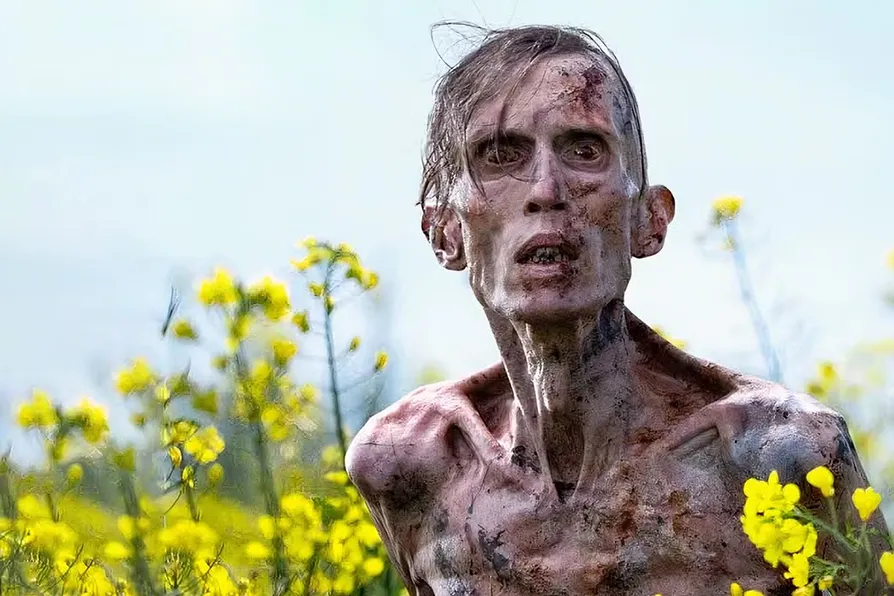JOHN GREEN, MARIA DUARTE and ANGUS REID review Fukushima: A Nuclear Nightmare, Man on the Run, If I Had Legs I’d Kick You, and Cold Storage
Is there a political message in the scenario of a plague of raging zombies in the UK, and kids growing up with it, wonders MARIA DUARTE

 FORMER TORY? A zombie, lost in the cornfields, in Danny Boyle's 28 Years Later [Pic: IMDb]
FORMER TORY? A zombie, lost in the cornfields, in Danny Boyle's 28 Years Later [Pic: IMDb]
28 Years Later (15)
Directed by Danny Boyle
★★★
IT has been 23 years since Academy award winning director Danny Boyle and writer Alex Garland introduced us to the apocalyptic horror 28 Days Later, and the two have reunited to explore that world again in 28 Years Later.
A lot has happened in that time including Brexit and Covid which are reflected in this film as from the outset we are told Britain is still in an enforced quarantine due to the continued presence of the rage virus, which originally escaped from a biological weapons laboratory, while Europe is virus free. In a telling inversion, EU military boats patrol British waters to ensure no-one leaves the UK.
Some people have learnt to live with the infected who have now evolved. Some are very slow and sloth-like, while others are very fast, and a new uber-zombie breed of Alpha males are smarter and relentless. Those infected are now able to procreate.
Meanwhile a small community of survivors have sealed themselves off on Holy Island, off the north-east coast of England, and connected to the mainland by a causeway.
It follows 12-year-old Spike (impressive newcomer Alfie Williams) who lives there with his father Jamie (Aaron Taylor-Johnson) and his mother Isla (Jodie Comer) who has a mysterious illness which cannot be treated as there are no longer any doctors.
It is a society which has reverted to men being hunter gatherers, and women being nurturers, teachers and mothers. Jamie proudly takes Spike, armed with a bow and arrow, on his first trip to the mainland to kill his first ever zombie in a rites-of-passage ritual which leaves him shaken.
When Spike learns there is a doctor (Ralph Fiennes) living on the mainland he decides to take his mum to see him, embarking on a perilous but terribly moving journey that bonds the mother and son.
There was the spirit of political allegory in the original, where the infectious “rage” that gripped the UK population could be felt as a metaphor for fascism. It was a brilliant conceit. Here, in the same world, Boyle and Garland’s sequel (we will ignore 28 Weeks Later) is about family and a young boy rejecting toxic masculinity and finding his humanity as he fights to save his mum.
Williams gives an extraordinary performance opposite a heartbreaking Comer. Fiennes is unforgettable as the head-shaven and iodine-besmirched Dr Kelson, who honours the dead on both sides by constructing skull monuments reminiscent of the death camps.
It ends on a shocking and disturbing note, that allows this ambitious allegory to extend itself into a sequel, The Bone Temple, due out next January.
In cinemas June 20

The Star's critic MARIA DUARTE reviews Along Came Love, The Ballad of Wallis Island, The Ritual, and Karate Kid: Legends












